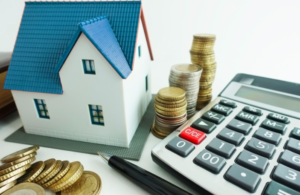How to decide how much to offer on a property
 The value of any property on the market is, essentially, how much a prospective buyer is prepared to pay for it. The listed price of a property for sale should be viewed as a starting point for negotiations between the buyer and seller with, in most cases, an estate agent acting as the intermediary. As in any type of negotiation it pays to do your homework and not just pluck an offer price out of the air and hope it will be accepted.
The value of any property on the market is, essentially, how much a prospective buyer is prepared to pay for it. The listed price of a property for sale should be viewed as a starting point for negotiations between the buyer and seller with, in most cases, an estate agent acting as the intermediary. As in any type of negotiation it pays to do your homework and not just pluck an offer price out of the air and hope it will be accepted.
In this article, we explain in detail how to make an offer on a property that will stand a good chance of being accepted by the seller.
Decide the criteria for your new home before you start house hunting
When you first start house hunting you should be completely sure in your mind what it is that you are looking for in a property. Doing this enables you to be confident that it fits your criteria when it comes to making an offer.
To help you decide the criteria for your new home ask yourself the following questions:
- how much can I afford to pay and still comfortably afford all my bills?
- in what area do I want to live?
- in what area do I definitely not want to live?
- do I want a house or would an apartment be suitable?
- would I be prepared to carry out some upgrade work on the property?
- do I want a garden and what size should it be?
- do I want off-road parking?
- do I need good access to a motorway or public transport for commuting?
- do I need a fast broadband connection?
- do I need a space where I can comfortably work from home?
- do I need access to good standard schools both now and in the future?
- do I need good access to support services such as a doctor's surgery or hospital?
Once you have decided the criteria for your next property you will then be able to assess the properties you view to see if you are having to compromise on your requirements. If you view a property that you like but it doesn't fit your criteria you can reflect that in your offer. If on the other hand a property ticks all the boxes then you may decide to offer more, or even the full asking price, to secure your dream home. You may want to check out our article 'Get the best deal when viewing a house: 41 things to check'.
Questions you should ask an estate agent when viewing a property?
When viewing a property you should find out as much as you can about the property and the area so you are fully briefed before you consider making an offer.
You should ask the estate agent or owner the following questions:
- how long have the owners lived in the property? - if they are moving after a short period then they should be able to give a plausible reason, such as needing more room or because a job move, otherwise you should be suspicious about the house or the area
- how long has the property been on the market? - if the property has been on the market for over 3 months then you should ask the estate agent why in his opinion it hasn't sold
- how many viewings have taken place so far? - if there have been a lot of viewings but no sale agreed it either means there is something wrong with the property/area or the seller is not prepared to negotiate on the asking price
- how did the estate agent decide on the asking price? - the agent should be able to provide comparable properties in the area that have sold for the asking price or close to it
- what fixtures and fittings are included in the sale?
- if it is an apartment how much is the service charge?
- what is the broadband speed in the area?
If you find a property that meets your criteria and you are comfortable with the estate agent's answers to your questions then you are ready to consider making an offer.
For more information on viewing a property read our article - Get the best deal when viewing a house: 41 things to check
Should I offer below the asking price?
I would not get too hung up on getting a great deal when purchasing a property; if you are really keen on a property there is nothing wrong with offering the full asking price to secure your dream home. If you are in a competitive market and there are only a few similar properties on the market then it would not make sense to make a low offer and risk losing a property that may fit your criteria perfectly.
If you are thinking of making an offer below the asking price then you will get a better reception from the owner if you have a reason for making your offer. Maybe there is work to be done on the property or you are in a good position to proceed with the sale quickly or there are more properties on the market that fit your criteria. Do not just go in with a crazy offer that is well below the asking price without providing a valid reason for your offer, this could well just annoy the seller and any further offers may just be dismissed out of hand.
If you can support your offer with solid reasons then making an offer between 5%-10% below the asking price would be a reasonable starting point.
Should I make an offer before I have sold my property?
Making an offer before selling your own property will show your interest to the owner but don't be surprised if the seller wants to leave the property on the market until either you sell your property or a better offer materialises.
A word of caution here. Often people have a tendency to hold back on putting their property on the market until they have found a property to buy, thinking if they cannot find anything then they will not move. This thinking is understandable but could leave you in a position where you fail to secure your next property because your own property is still unsold. If you put your property on the market at the same time as you start viewing new properties you will get a better understanding of the saleability of your current home which puts you in a good position to move forward when you find your ideal property.
How to make an offer on a property
If you are considering making an offer, do not do it until you have viewed the property at least twice. On the second viewing look for the negative aspects of the property so you come away with a more balanced opinion.
The majority of property sales in the UK are transacted through an estate agent, so if you want to make an offer on a property you should do it through the estate agent. If there is no agent involved make the offer directly to the seller.
When you make an offer always state that this offer is subject to a survey so if anything untoward is found you are in a good position to renegotiate the sale price. Be sure you provide to the estate agent as many details as you can to promote yourself as a strong buyer for this property.
Examples of what could make you a strong buyer in the eyes of the seller:
- cash buyer
- have a mortgage in principle agreed
- no property to sell
- flexible on moving dates
- you have an agreed offer on your own property
If you have made your offer verbally make sure you confirm the offer and all the details by email.
How to negotiate down a property price
Do your homework
Before making an offer you should do your homework on the property and market in that area.
Make notes on all the issues with the property that you will need to address if you bought it and make a rough estimate of the costs involved. Then look on a property portal such as Rightmove or Zoopla to see if there are any similar properties currently on the market and compare them for condition and price with the one you have viewed.
With the above information and knowledge of how long the property has been on the market you will be armed with some solid information that you can use to negotiate down the property price.
Do not be in a hurry
If you want to negotiate down a property price you should not be in a rush. Making the seller wait for your responses will give them the feeling that you have other options you are considering. When you speak to the estate agent you should also give them the feeling that you are considering a number of options so they will, hopefully, feed that back to the seller.
Find out as much as you can about the seller's situation
Ask the estate agent about the seller's position, have they got pressing timescales or in danger of losing their dream home if they cannot sell their own home. All these details will enable you to understand their needs as well as your own and what issues you can focus on to get your offer accepted.
Don't increase your offer without trying to get something in return
Always look for something in return if you have to increase your offer. Your offer is what you feel the property is worth which you have proven to yourself by your research. It could be curtains or a garden shed but getting something in return for increasing your offer will give the seller the impression that you are confident in your valuation of their property and more likely to accept your offer.
Be prepared to walk away
If you are confident in your valuation and determined to negotiate a price reduction then if this is not achieved you should be prepared to walk away.
What to do once the offer is accepted
Once you have made an offer and it has been accepted you should ask the seller to take the property off the market. The seller is not obliged to do this but most sellers will agree so that the sale can proceed smoothly.
You should complete your mortgage application as soon as possible and provide all the necessary documentation to the lender. If there are any queries raised by the lender then deal with these promptly to avoid any unnecessary delays. You may want to check out our article 'How to apply for a mortgage'.
Instruct your chosen solicitor or conveyancer and provide their details to the seller's estate agent.
Keep on top of your mortgage application by contacting your lender or mortgage broker regularly. Around 30% of all property sales fail to reach completion so you do not want your sale to be a casualty because of an issue that could have been avoided.
Gazumping
Even though your offer may have been accepted by the seller this acceptance is not legally binding until the exchange of contracts has taken place. This presents the possibility of the seller accepting a higher offer from another buyer, known as 'gazumping'. If the seller agrees to take the property off the market the chances of being gazumped are limited. Gazumping is more of an issue in a seller's market where properties sell quickly and the number of properties on the market is low.
Sealed bids
Where there are a number of buyers negotiating on a property at the same time the seller may request prospective buyers to bid for the property in the form of a sealed bid. Each buyer will submit their bid in writing and seal it in an envelope which are all opened at the same time, usually by the estate agent. Sealed bids are a form of auction but there is no legal obligation on the part of the seller to accept the highest bid.
What to do if your offer is rejected
If you make an offer and it is rejected and you are still keen on purchasing the property then you should try and ascertain from the estate agent what offer price the seller is likely to accept. Bear in mind the estate agent works for the seller and in most cases will not receive any payment until the property is sold, so it is in their interest financially to try and reach a compromise on the purchase price.
If you are given an idea of the lowest offer the seller is likely to accept then you can decide if you want to match that price or move closer to it. If you are too far apart then you may be better off walking away from this property and carry on your search for your dream home.






